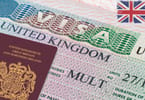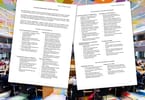Tourism players in Tanzania are likely to raise their glasses to toast for remarkable earnings this year, thanks to the state for granting them a tax relief in a bid to spur industry growth.
In the 2018/19 budget tabled in parliament on Thursday last week, the Finance Minister, Dr. Phillip Mpango proposed to scrap off import duty on various tourist’s vehicles in an effort to stimulate the development of key sector of the economy.
Tourism is Tanzania’s largest foreign exchange earner, contributing an average of $2 plus billion annually, which is equivalent to 25 percent of all exchange earnings, the government data indicate.
Tourism also contributes to more than 17 percent of the national gross domestic product (GPD), creating more than 1.5 million jobs.
“I propose to amend the fifth schedule of the East African Community – Customs Management Act, 2004 in order to provide import duty exemption on various types of motor vehicles for transportation of tourists” Dr. Mpango tabled before the National Assembly in the country’s capital city of Dodoma.
The vehicles that would be imported duty-free in July 1, 2018 once the amended law comes into force include Motor Cars, Sight Seeing buses and overland trucks, which are imported by, licensed tour operators and must meet specific conditions.
“The objective of this measure is to promote investments in the tourism sector, improve services, create employment and increase Government revenue” he told the ongoing parliament.
Chairman of Tanzania Association of Tour Operators (TATO), Wilbard Chambulo was moved by the state to waive the import duty, saying the tax exemption is a sigh of relief to its members, as it will save them $9,727 for each imported tourist vehicle.
“Imagine before this relief some tour operators used to import up to 100 new vehicles at ago and pay $972,700 as import duty alone. Now this money would be invested to expand the company to create more jobs and revenues” Mr Chambulo explained.
It is understood, TATO had fought consistently for this to happen, and now its chief is grateful to the government for being considerate to their consistent scream, terming this move as a win-win deal.
Available records indicate that tour operators in Tanzania are subjected to 37 different taxes, comprising business registration, regulatory licenses fees, entry fees, income taxes and duties for each tourist vehicle per annum, among others.
The TATO chairman argued that the contentious issue is not only how to pay myriad taxes and make profits, but also the modality and time spent in complying with intricate taxes.
“Tour operators need streamlining of taxes to ease compliance because the cost of compliance is so high and as such it acts as obstacle for voluntary compliance” Mr Chambulo explained.
Indeed, a study on Tanzanian tourism sector indicates that the administrative burdens of completing license tax and levy paperwork place a heavy cost on businesses in terms of time and money.
For instance, tour operator spends over four months to complete regulatory paperwork, whereas in tax and license paperwork consume his or her a total of 745 hours per year.
The report done by Tanzania Confederation of Tourism (TCT) and BEST- Dialogue, shows that average annual cost of personnel to complete regulatory paperwork per local tour operator is Tsh 2.9 million ($1,300) per year.
Tanzania is estimated a home to over 1,000 tour companies, but official data shows that there are as few as 330 formal firms complying with tax regime, which is likely to be due to the complexities of compliance.
This means that there could be 670 briefcase tour firms operating in Tanzania. Going by the annual license fee of $2000, it means that treasury loses $1.34 million annually.
However, the Finance Minister, Dr. Mpango also promised through the budget speech that the government is to introduce a single payment system where businessmen would be paying all taxes under one roof to offer them a hassle-free taxes compliance.
Dr. Mpango also scrapped off the various fees under Occupational, safety and Health Authority (OSHA) such as fees imposed on application form for registration of working places, levies, fines related to fire and rescue equipment, compliance license and consultancy fees of shillings 500,000/- ($222) and 450,000 respectively ($200).
“The Government will continue to review various Levies and Fees imposed by Parastatal Organizations, Institutions and Agencies with a view to improving business and investment environment” the Minister told the Parliament.
TATO CEO, Mr Sirili Akko is optimistic that if the budget would be endorsed by the Parliament and implemented the way it is, it would open up more opportunities for investors who in turn would unlock the tourism potential.
WHAT TO TAKE AWAY FROM THIS ARTICLE:
- Chairman of Tanzania Association of Tour Operators (TATO), Wilbard Chambulo was moved by the state to waive the import duty, saying the tax exemption is a sigh of relief to its members, as it will save them $9,727 for each imported tourist vehicle.
- Tanzania is estimated a home to over 1,000 tour companies, but official data shows that there are as few as 330 formal firms complying with tax regime, which is likely to be due to the complexities of compliance.
- Tourism players in Tanzania are likely to raise their glasses to toast for remarkable earnings this year, thanks to the state for granting them a tax relief in a bid to spur industry growth.






















